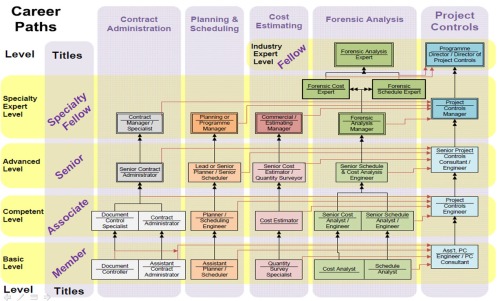After two years of development, the basic framework of the Planning Planet ‘International Guild of Project Controls’ (GPC) is in place to develop a career framework and accreditation system for project controls professionals. The mission of the GPC is to develop a centre of excellence for developing the skills, expertise and capability of professionals in the field of project controls.
The Planning Planet, GPC announcement on the 11/11/11 confirms the Guild’s aims, objectives, governance processes, controls and initial management team are all in place.
The professional development teams are working to establish a framework of ‘standards of practice’ to support project controls professionals in their careers. The current status of this vital work is:
These standards have been mapped to a proposed career framework, and levels of membership, that recognises the different streams of expertise within the overall project controls framework.
With Phase 1 now officially launched, project controls professionals world-wide are invited to become part of the process to define our profession. The first four steps of the process are available now, for you to sign up and support this important development.
Additionally, the schedule leading to the launch of Phase 2 in March 2012 is set out below – if you want to influence this process, now is the time to be involved!!
The launch of Phase 2 will mark the start of formal accreditation to the GPC the intended framework for accreditation has to be finalised but is expected to include the following:
Personally I would like to congratulate James, Theo and the GPC committees on a massive effort and wish them every success as they move forward. If you want to be part of this process or simply find out more, download the GPC Launch presentation and sign up to help at: http://www.planningplanet.com/guild








